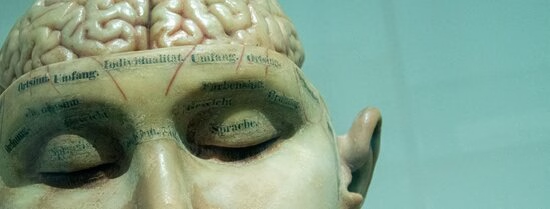Mission
Understanding how people think and behave, and understanding the mental representations and brain structures that drive our actions are essential for a thorough insight into how individuals operate within society. We are advancing research addressing these questions, by developing new theories and designing new research methods, from new approaches in survey research to simulation models, neuroimaging techniques, and innovative experimental and VR applications in the lab.
Our work is grounded in Open and Responsible Science, emphasizing transparency, collaboration, and reproducibility. Through education, interdisciplinary partnerships, and outreach initiatives, we ensure our science benefits both academic and public communities.
Research
We see ourselves as a pioneering team when it comes to formulating and investigating fundamental research questions related to cognitive and brain-related processes and open science. At the same time, we have developed a more applied societal perspective, focusing on urgent issues, such as misinformation, stereotypes, resilience, addiction, math anxiety, spatial navigation, and conspiracy thinking, which have clear cognitive underpinnings.
Our research results are always obtained through high quality research practices (such as openness, rigor, reproducibility, replicability, and integrity). Additionally, we investigate new areas in the domain of artificial intelligence and large language models (LLM), focusing on their effects on human cognition.
Click on a research topic to learn more about our research:
- Effective and Efficient Learning Environments
- Digital education opportunities and implications
- Cognitive processes of conspiracy theories
- Motivation, stress and engagement
- Applied Research Methods and Statistics
- Human cognition and our flexible knowledge
Education
Our education goals are to provide future-proof, attractive courses with a balance in brain and cognition content. We focus on developing strong methodological skills that are essential for conducting ethical and transparent cognition and brain research. Moreover, we teach fundamental courses on cognition. Topics include perception, memory, language, and decision making. They are explored from theoretical, behavioural, and neurological perspectives. In our courses, we emphasize open science and responsible research practices. Our aim is to make the Brain and Cognition curriculum sustainable and appealing. We do this by applying fundamental knowledge and skills to contemporary social issues, and by taking new technologies into account.
Impact
We achieve our impact through:
- Unique and relevant approaches to brain and cognition themes, fostering interdisciplinary collaborations;
- A dual focus on theoretical advancement and real-world relevance, ensuring our research contributes to both scientific knowledge and societal well-being;
- Investment in state-of-the-art behavioural and neuroimaging methodologies to enable high-quality, innovative research;
- An adaptive research agenda that responds to emerging societal trends, such as changes in substance use patterns and the rise of conspiracy thinking, while maintaining strong roots in foundational science.
Thus, through rigorous fundamental research, we advance the scientific understanding of the human mind and behaviour and can apply this knowledge to address societal challenges.
